August 31, 2021
While there have been undeniable benefits to the ever-increasing number of health “experts,” plans, programs, books, resources…
…the sheer volume of information can invoke a feeling of understandable overwhelm about where to start.
Now, don't get me wrong: I'm a big fan of more information. But I think it's also important to occasionally take the time to take a look at the entirety of the articles I have written and podcasts I have put out there and distill that material into a pithy list of the fundamentals. What resulted was a list of 12 primary principles that, if practiced, regularly, will bring you closer to perfect health.
What do I mean by perfect? And isn't striving for perfection a futile endeavor, considering that you are inherently fallible as a human being?
When I talk about perfect health, I am not talking about never having that bowl of ice cream or skipping your workout. Perfect health, like the perfect diet or the perfect workout, is whatever makes you look good, feel good, have an optimized combination of lifespan and healthspan, and be happy—and how that looks is going to be different for you than it is for your partner or your friend. However, there are certain fundamentals that offer universal benefits, regardless of your age, gender, physical fitness, knowledge base, or life circumstances, and if you can practice those fundamentals daily, you'll be on the right path towards (your own personal) perfect health.
The best part? The principles outlined below don't require fancy equipment, a financial investment, or even hours of time. If you have 15 minutes between meetings, you can go for a walk, practice breathwork, pray, listen to music, or have a big glass of re-mineralized water. It's even entirely doable to practice all of the principles daily, though focusing on one at a time can help to avoid overwhelm.
As I said, I have written and podcasted extensively on all of the topics below. So in this article, I am intentionally only giving a general overview of each principle for the sake of brevity. More detailed information can be found on my website by searching for any of the terms I mention here and are also laid out in detail in my book Boundless.
Anyways, I recommend bookmarking this article or making note of this list in a convenient place as a reminder to recenter if you have a tendency—as I do—to get caught up in the latest biohack, cool new gadget, or fringe treatment. The 12 health fundamentals or “principles” outlined below are where you should keep your focus, and I can tell you with confidence that implementing these practices on a regular basis will yield life-changing and life-extending results.
The 12 Primary Principles For Perfect Health
Perfect Health Fundamental #1: Walk
 Walking is, in my opinion, one of the most underrated activities in one's health arsenal.
Walking is, in my opinion, one of the most underrated activities in one's health arsenal.
It facilitates neuron growth, circulates blood, lymph, and cerebrospinal fluid, decreases cortisol, resets the eyes from looking at screens, strengthens tendons and ligaments, and stabilizes blood sugar.
In this article, I mostly focus on the benefits of a forward motion mindset during stressful times, but I also get into the benefits of literal forward motion.
Why is this? Research conducted by Stanford’s Dr. Andrew Huberman has shown that forward movement in the face of agitation activates the winning circuit in the brain (linked to boldness and courage) and reduces stress. Why? Well, optic flow—the motion pattern that is presented to your eyes when you're walking—quiets some of the circuits that are responsible for stress. Forward motion, and specifically the lateral eye movements that happen while moving your body forward, may also suppress fear-related amygdala activity during recall of traumatic memory, creating distance from the negative emotions of a traumatic experience.
Walking is also one of the most “stackable” practices on this list, as it's the perfect health pairing for breathwork, and, assuming you are walking outside—which is, of course, recommended over a gym treadmill—it exposes you to natural light, the elements (including heat and cold…get outside whatever the weather), and it can certainly enhance your spirituality.
Your goal should be to take 10,000 steps a day, and there are plenty of wearable devices out there to track your progress. My favorites are my Oura ring (I never take it off) and the WHOOP (more on the WHOOP here, and you can get $30 off your own with code BEN).
Bottom line: Walk 10,000-20,000 steps per day on as many days of the week as possible.
Perfect Health Fundamental #2: Heat
Regular sweating or getting hot in an infrared or dry sauna results in endurance along with red blood cell, muscular, brain, stress resilience, and blood sugar management benefits.
Most notably, using the sauna four to five times a week for 20-45 minutes can decrease most causes of all-risk mortality, dementia, and Alzheimer's, particularly in men.
“Detox” has been a hot (hah) word in the health industry for decades—with all sorts of cleanses touted as practices that eliminate toxins from your body. While there are legitimate benefits to certain nutritional cleanses—in fact, not long ago, my wife Jessa and I tried a juice fast, with decent results—in my opinion, sauna is the quickest, most effective detox. Most environmental toxins are stored in fat tissue, and when your body temperature rises, the toxins are mobilized from those fat cells and excreted through your skin via sweat. For much, much more on the powerful and specific benefits of sauna, check out my recent article The Latest In Sauna Science: 9 Potent Health Benefits of Sauna, Plus 5 Tips for Getting the Most Out of Your Sweatbox Experience.
Sauna, like walking, can be effectively and effortlessly paired with other fundamentals on this list. I practice breathwork in my sauna daily, and finishing heat therapy with cold (see below) allows you to also get the cardiovascular and immune benefits of hot-cold contrast therapy. (I explore the many beneficial aspects of both hot and cold therapy in my comprehensive Fire & Ice podcast.)
Bottom line: Get into a deep sweat or do a sauna three to five days a week, for 20-45 minutes.
Perfect Health Fundamental #3: Cold
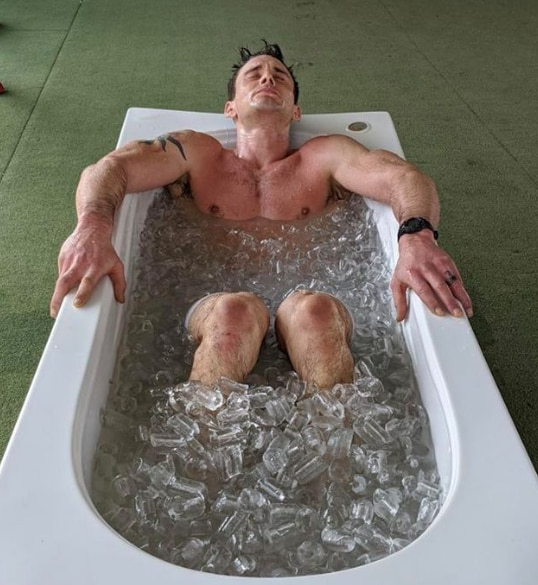 Similar to heat, cold introduces a mild stressor, known as a hormetic stressor, to your body, resulting in increased cellular resilience and immune system strength.
Similar to heat, cold introduces a mild stressor, known as a hormetic stressor, to your body, resulting in increased cellular resilience and immune system strength.
Cold therapy is also particularly good for fat loss when performed in a fasted state and is not very time-consuming at all.
I first discovered the benefits of cold therapy during my early days of cold water swimming back when I was racing triathlons. The health gains of cold water swimming have been well-documented in the research, though it should be noted that polar plunges should be done with caution and supervision particularly if you're a novice, as the risks of drowning and/or hypothermia are real. However, done properly, cold water swimming is a highly beneficial exercise practice. Nowadays I take a cold shower or jump into any cold body of water (55°F or less) twice per day, for 2-5 minutes, every day of the year.
There are so many benefits to cold therapy that going into detail about each of those here would preclude keeping this article brief. And not only are there a myriad of health benefits, but there are also a nearly unlimited number of secondary health benefits. For example, most people find that the decrease in core temperature and regulation of circadian rhythm brought on by cold will furthermore improve sleep. Improved sleep will, in turn, slow down aging, help flush toxins out of your body, regulate hormones, and more.
Now, while you don't necessarily need any special equipment for cold therapy (I'm assuming you have a shower…), there is one really cool :) new gadget that I recently discovered that's pretty inexpensive and can impart the benefits of cold exposure without getting your body wet. It's called the Cryohelmet from Catalyst and it's, well, a helmet, that delivers long-lasting cooling therapy to the head.
However you decide to chill out, cold therapy will significantly up level your health when practiced regularly.
Bottom line: Whether via cold shower, cold bath, cryotherapy chamber, or any other method, try to be uncomfortably cold for at least three minutes every day.
Perfect Health Fundamental #4: Strength
Nearly every biological system in your body benefits from being under some sort of heavy load several times per week.
In fact, lifting heavy weight could be one of the most potent tactics for defying age.
Chapter 9 of my book Boundless (Sexy Forever: How To Build Functional Muscle For Life) delves into the science behind antiaging and weight lifting, and what the results of studies have concluded is that people who don't put heavy physical loads on their bodies may be biologically ten years older than active people of the same chronological age. Why? There appear to be several mechanisms that factor into the anti-aging benefits of lifting heavy loads. As you age, you lose skeletal muscle mass and function—a condition called sarcopenia. Research has shown that sarcopenia is associated with mitochondrial dysfunction. Mitochondria—the primary engines of energy production—appear to be significantly younger after six months of progressive resistance training. In Boundless, I also talk about a groundbreaking study that found that older adults who engaged in strength training at least twice a week had 46 percent lower odds of death for any reason than those who did not.
A lack of knowledge about how to lift weights properly is certainly a primary reason why many people don't get into strength training. After all, walking into the weight room at the gym can be intimidating if you don't know what you're doing—and you're also in danger of injury. The sweet spot for load-bearing for most people is about a 3x/week for 20-45 minutes of a full body weight training protocol using weights that are extremely difficult to lift for more than 10 repetitions, with occasional bursts of more powerful, quick, explosive sets under bodyweight or light load. I go into more detail about specific workouts in Boundless, and a good personal trainer can get you started lifting right, too.
Bottom line: Do a full-body strength training session two to three times per week, pushing the muscles as close to failure as you can with good form, either with heavy loads (preferred) or many reps (e.g. if you must do bodyweight training, for example).
Perfect Health Fundamental #5: Breath
Breathwork is a powerful way to tap into a host of perfect health benefits…
…from increased nitric oxide, to a stronger immune system, to better sleep, to higher energy levels and cellular oxygenation, better sex, psychedelic experiences without the use of substances, and much more.
I have covered breathwork extensively in the past because it not only yields powerful results, it is quick, free, requires no equipment, and you can practice it anywhere (and discreetly—nobody will even notice most forms of breathwork in a crowded coffee shop). In this article, I also talk about how breathwork is the perfect complement to prayer—a pathway to connecting more intimately with yourself and God.
I breathe through my nose as much as possible the entire day, thus filtering the air and introducing more humidified air and nitric oxide into my system (for more on nitric oxide, check out this recent podcast) and begin each day, and most workouts, with activating breathwork. I also use breathwork to calm myself down for both sleep and afternoon naps (learn more about how I optimize sleep and rest here). Finally, whenever I am walking, I am typically doing long exhales and holding the exhales for as many steps as possible, along with practicing decompression breathing.
You breathe approximately 22,000 times each day, and there are near that many different forms of breathwork you can try (kidding, but really…there are a lot). I have in the past shifted my primary breathwork practice from Wim Hof breathing to Kundalini to box breathing and plenty of others, but for a while now I have focused on SOMA breath, which is a technique I learned from past podcast guest Niraj Naik. SOMA breathing has dramatically increased my physical health, mental, and emotional wellbeing, spiritual connection, and because I’ve been able to incorporate my boys and my wife Jessa into many of my SOMA sessions, even my relationship with my family. I encourage you to test out a number of techniques as breathwork really is a personal practice, and whichever form you prefer will undoubtedly foster improved health and life satisfaction.
Bottom line: Focus on your breath (meditation, breathwork, prayer, etc.) for at least five minutes in the morning, and five minutes in the evening.
Perfect Health Fundamental #6: Air
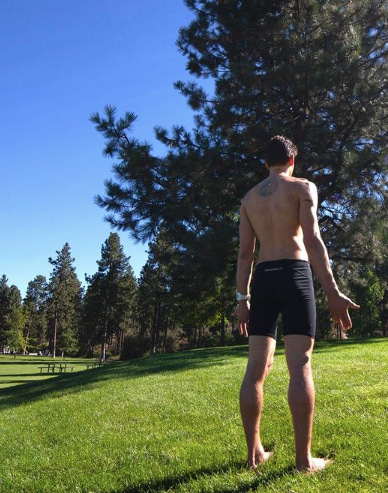 Of course, if you're practicing breathwork, it's crucial that you ensure the air you are breathing is filtered, clean, and pure.
Of course, if you're practicing breathwork, it's crucial that you ensure the air you are breathing is filtered, clean, and pure.
Ideally, you are breathing outdoor air, but that is not of course possible all of the time.
When inhaled, toxins present in the air first go through your lungs and then are circulated to your organs including your heart, liver, kidneys, and brain. And considering that every day you inhaling an average of 15,000 liters of air, it should go without saying that the air you take in should be of the highest possible quality. This is a pretty significant undertaking considering that both indoor and outdoor air pollution is rampant in modern society. Dust, pet dander, mold spores, pollen, and smoke all contribute to indoor air pollution, and so does furniture, carpeting, household cleaners, and paint. Before you start panicking about seemingly everything in your home contributing to your body's toxic load, rest assured there are plenty of practices you can implement to clean your indoor air.
The big factors for air cleanliness that I personally incorporate, besides the focus on nasal breathing mentioned in the section about breathwork above, are…
- A central HEPA air filter in my home and home gym;
- Standalone air filters in my bedroom and office;
- Calling ahead to hotels to request a standalone air filter in my room;
- Only using natural cleaning supplies, low VOC paint, and low VOC furniture in my home;
- Get a mold analysis of my home on an annual basis;
- Using an essential oil diffuser beside my bed and in my office to induce certain biological states, such as the relaxing scents of lavender or bergamot in the bedroom.
There is of course less that you can do about outdoor air pollution. In Chapter 20 of Boundless, I talk about several studies that looked at the effects of air pollution during exercise. What the research has shown is that exercise appears to offset the negative effects of outdoor air pollution, meaning that you should still get outside for that run or swim even if you are living in a geographic area with less-than-ideal air quality. In that chapter, I also present the following tips for lessening the damage from pollution while exercising, whether it's indoors at a gym that's liberal with the Lysol or right in the middle of a major city.
- Know when to exercise. Air pollution is highest at higher temperatures, so take your hike early in the morning or after dinner.
- Avoid working out along roads. Even 10-20 feet further from the freeway will help.
- Educate yourself about your community's air pollution levels. Schedule your workouts for the least-polluted hours of the day.
- Wear a mask. Yes, I was advising wearing a mask during workouts in polluted areas well before this pandemic (it should be a proper filtration mask, though, not the cloth mask you had to wear to the grocery store).
- Maximize your antioxidant intake. Foods high in antioxidants—such as blueberries and leafy greens—will help your body fight harmful free radicals (which can do damage to fatty tissue, DNA, and proteins in your body).
Bottom line: Invest in a good air filtration system in your office, home, and gym.
Perfect Health Fundamental #7: Light
Similar to air, the concept of “light pollution” is something that most people don't think about until they develop eyesight issues, headaches, brain fog, or sleep disruption.
Modern fluorescent and LED lighting, along with overhead lights and screens, can create similar problems as you might experience if you were holding a phone up to your head all day, or sitting next to a WiFi router all day.
After all, your body was not designed for this lifestyle—your ancestors were outside taking in the morning light, afternoon light, and evening light at precisely the right times to keep your body's circadian rhythm aligned. Your circadian rhythm—your body's internal clock—regulates your digestion, mental health, immune system, sleep, and more, and when it's disrupted by artificial light, the results can be catastrophic. I talk more about the negative health consequences of artificial light in this article, which include endocrine and cellular disruption, breast cancer, and severe retinal damage, among many others.
To mitigate these effects, I use technology such as Iris screen software on my computer, blue light blocking glasses by day and red by night, Joovv light panels, and infrared sauna. I also have red incandescent bulbs installed in the bedroom and master bathroom, full-spectrum incandescent bulbs in all other areas of the house, and use the “red light iPhone trick” at night. I also, of course, get outside whenever possible, taking long daily walks, getting morning sun, and rarely wearing sunglasses so that my retinas can kick off a cycle of hormone activation that offers protection from harmful UV radiation (because don't forget, your body was designed to handle the elements, which is why your ancestors did not sport shades).
Bottom line: Be outside for at least 60 minutes per day, especially early in the day, even if there's cloud cover (the sun gets through!).
Perfect Health Fundamental #8: Electricity
EMF is everywhere.
EMF (electromagnetic frequency) radiation is a form of environmental pollution that is a direct result of this age of technology.
All electrically powered devices, such as domestic appliances, cell phones, computers, and industrial machines, emit EMF, and all metallic objects, from electrical circuits to gas pipes to even your car keys, act as antennae that collect and magnify EMF, significantly altering the balance of your body's biochemical energy patterns. Because your entire body operates on a proper electrochemical balance across cell membranes, there are significant biological consequences with exposure to non-native EMF and dirty electricity. What can result are headaches, vision problems, anxiety, irritability, depression, nausea, fatigue, disturbed sleep, poor physical performance, and loss of motivation. Is that enough to make you want to throw your cell phone out the window?
I actually had a full analysis done on the EMF in my home by expert Brian Hoyser, and I shared the results on this—three-plus hour-long!—podcast with Brian. Now, I understand that a building biology consultation may not be feasible for you (though if it is, I highly recommend it), but the good news is that there is plenty that you can do to minimize your exposure to EMF in your home regardless.
I recommend hardwiring as much as you can, especially by using ethernet instead of WiFi to do the majority of your work. Keep your phone in a shielded case, in airplane mode, and with WiFi and Bluetooth disabled unless absolutely necessary. If talking on your phone, use an air tube headset. If you must use WiFi, switch it off during your sleep hours with a digital timer. Avoid creating a “smart home.” For any wearables, place in airplane mode whenever possible, or only use devices that allow you to disable Bluetooth/WiFi. I have personally found benefits in using EMF “scrambling” or healthy signal generating devices extensively in my living room, office, kitchen, and bedroom. To counteract the negative effects of EMFs, I also recommend exploring PEMF therapy and grounding/earthing.
Bottom line: Turn off your WiFi router and keep your phone/wearables/devices in airplane mode unless absolutely necessary to have WiFi/Bluetooth on.
Perfect Health Fundamental #9: Water
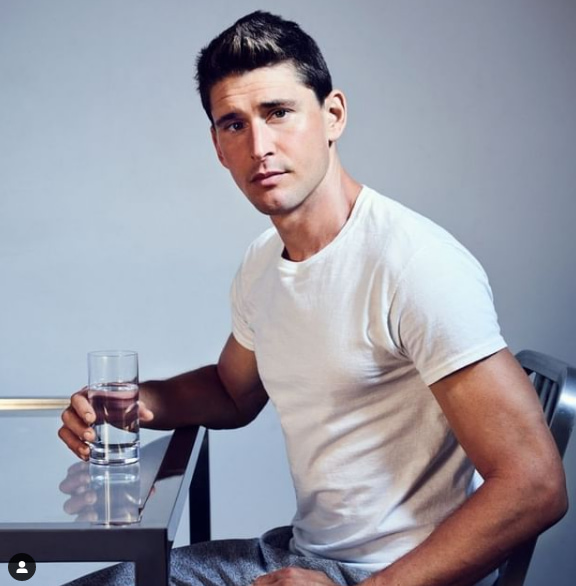 Look, you've heard it before: Hydration is important because your body has a lot of water in it.
Look, you've heard it before: Hydration is important because your body has a lot of water in it.
This means you not only need to pay attention to the quality of your water intake, but the electron-charged minerals contained within that water, and even the type of vessels in which water is stored and the energy that water is exposed to.
I have learned much of what I know about water from my own father, Gary Greenfield, who has traveled the world learning about the natural governing principles of water. In 2009, my father founded Greenfield Naturals, a company devoted to research, development, and marketing of water structuring and energizing products built using technologies that mimic water's natural principles. So I suppose you could say my interest in water runs deep (hah).
My other go-to person for all things water is Robert Slovak, who has been a guest on my podcast multiple times, but I will warn you that if you listen to me talking to Robert (check out this episode, this episode, and this episode), you may feel like it's a flood :) of information, but you really can take on cleaning up your water in stages.
The first, most important thing that you can do is start to filter your water. My father's company is the leader in whole-house filtration systems, but if that's not within your budget, or you're living in a rental, AquaTru makes a great countertop filter that's inexpensive and doesn't take up a lot of room on your counter. Also, when traveling, only drink clean, pure filtered water. For any form of water, drink out of glass, not plastic. Finally, liberally re-mineralize both your water and your food with a trace mineral solution or good salt.
Bottom line: Drink filtered water only from glass bottles and invest in a good water filtration system for your office/home.
Perfect Health Fundamental #10: Sound
Every cell in your body vibrates with specific frequencies…
…and so paying attention to the sounds and music in your personal environment is a very good idea.
But you may, like me for the longest time, underestimate the power of acoustic and sound frequencies in your life. Last year, I read a book called Sound Medicine: How to Use the Ancient Science of Sound to Heal the Body and Mind. Written by Kulreet Chaudhary, a leading neurologist, neuroscientist, and practitioner of Ayurvedic medicine, the book is a rigorous scientific investigation into the power of sound healing. I invited Kulreet to be a guest on my podcast after reading her book, and we really got into how sound works on a cellular level—Kulreet talked about how cells have their own individual “songs,” or unique frequencies that can be translated into audible sounds, and when you can tune in (get it?) to those frequencies, you can return your cells to perfect health. It makes you rethink the power of your Spotify playlist, does it not?
So, how do I use sound to optimize my own self?
First, I'm picky about the type of music to which I listen. In addition to WholeTones music, I primarily choose uplifting, positive, and non-chaotic music such as classical, orchestral, and spiritual in my own living and working environment. Second, I frequently use binaural beats, sound frequency generators, and other forms of audio to induce a state of either relaxation or excitation. Finally, I like to use things like Tibetan singing bowls and I play handpan, a type of drum that I find to be incredibly therapeutic, especially in the evening.
Bottom line: Buy a musical instrument and mess around with it for five to fifteen minutes per day, even if you're no good. Alternatively or in addition to that, sing a song once per day.
Perfect Health Fundamental #11: Nutrition
Ahh…food.
You knew it would be on this list, didn't you?
There is probably no other health topic that has been as widely researched, written about, discussed, and debated. Countless experts have proposed countless diets that claim to be the answer to losing weight, optimizing energy, maximizing your brainpower, and more. Here's the thing, though…there is no perfect nutrition plan. I am not here to tell you to eat a certain way. In fact, in my book Boundless, I titled Chapter 14 “F&*K DIETS,” and I go over how to determine your own biochemical individuality along with how to know what way of eating is perfect for you (note: “for you”). I also devoted two podcast episodes to finding your own right way to eat (Part 1 is here and Part 2 is here).
But no matter what nutrition plan you are following, there are specific characteristics that are repeatedly seen in the diets of most of the healthiest and longest-living individuals, such as incorporating fasting regularly. It’s also important to eat in a parasympathetic state with perfect health fundamentals such as chewing each bite thoroughly and engaging in relaxing conversation during meals.
Of course, you want to eat real food, as fresh and close to nature as possible, with a wide variety of proteins, fats, carbohydrates, plants, herbs, and spices, avoiding vegetable oils, processed sugar, and acellular carbohydrates (which may promote inflammation). Finally, while nutritional supplements can be beneficial, don't fool yourself into thinking they are going to make a bigger difference than making good food choices.
Bottom line: Audit your entire kitchen/pantry/refrigerator to eliminate as much packaged food as possible, especially if it has vegetable oil and refined carbohydrates in it.
Perfect Health Fundamental #12: Spirit
Nothing is more important than caring for your soul.
Now, I’m perhaps most well-known as an author, speaker, and consultant in the realms of health, fitness, nutrition, and body and brain optimization. But for much of my life, I did not focus on building my spiritual muscles in the same way that I prioritized physical disciplines such as caring for my metabolic health, growing my physical muscles, or tending to the neurons in my brain. The result was that I was left unfulfilled, unhappy, and unable to fully love others and to make a maximum, purpose-filled impact with my life.
If you are not regularly training your soul with spiritual disciplines just as frequently as you engage in physical or mental disciplines, you can have a sound mind and body, and yet be unfulfilled and unhappy or, worse yet, die of a horrible disease related to pent-up negative emotions.
I personally read the Bible, pray throughout the day, prioritize service and charity, and faithfully pick up my Spiritual Disciplines Journal each morning and evening to practice gratitude, remind myself to serve others, and reflect on my day. This final twelfth principle of caring for my spirit is the only principle from which I derive true personal purpose, happiness, and fulfillment—and as long as I am prioritizing my spiritual fitness, I am on my way to perfect health.
Bottom line: Do this every day. Include your entire family if you have one and you can.
Summary
You may feel overwhelmed by the prospect of incorporating each of these 12 principles into your life.
The solution is to take things one step at a time.
You don't need to be perfect to seek perfect health.
If you return to the fundamentals I've summarized below—and you may need to revisit this list again and again—you will experience remarkable benefits to your body, health, and life satisfaction.
- Walk. Aim for 10,000-20,000 steps per day on as many days of the week as possible.
- Heat. Get into a deep sweat or do a sauna three to five days a week, for 20-45 minutes.
- Cold. Whether via cold shower, cold bath, cryotherapy chamber, or any other method, try to be uncomfortably cold for at least three minutes every day.
- Breath. Focus on your breath (meditation, breathwork, prayer, etc.) for at least five minutes in the morning, and five minutes in the evening.
- Air. Invest in a good air filtration system in your office, home, and gym.
- Light. Be outside for at least 60 minutes per day, especially early in the day, even if there's cloud cover (the sun gets through!).
- Electricity. Turn off your WiFi router and keep your phone/wearables/devices in airplane mode unless absolutely necessary to have WiFi/Bluetooth on.
- Water. Drink filtered water only from glass bottles and invest in a good water filtration system for your office/home.
- Sound. Buy a musical instrument and mess around with it for five to fifteen minutes per day, even if you're no good. Alternatively or in addition to that, sing a song once per day.
- Nutrition. Audit your entire kitchen/pantry/refrigerator to eliminate as much packaged food as possible, especially if it has vegetable oil and refined carbohydrates in it.
- Spirit. Do this every day. Include your entire family if you have one and you can.
Don't forget that many of the “bottom line” tips outlined above can be habit-stacked, meaning that you can practice more than one at a time. Perhaps you may even want to take on the challenge of figuring out how many you can incorporate in a single hour! Keep the basics in mind, and remember: practice makes perfect.
What are your thoughts on the 12 perfect health principles I've outlined here? Are there practices you want to commit to but haven't yet? Do you think there are any others that should be included on this list? Leave your questions and feedback below. I read them all.



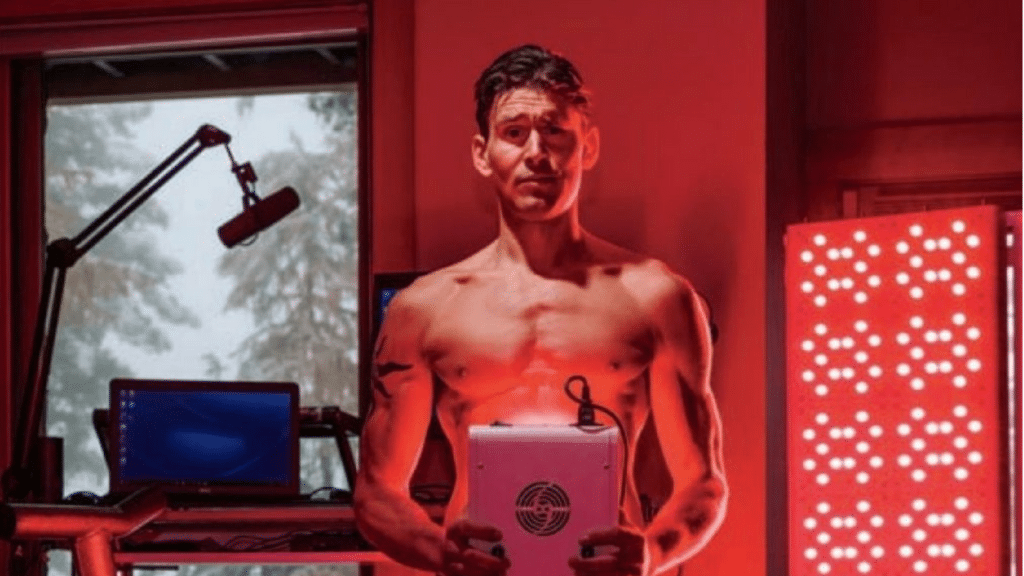
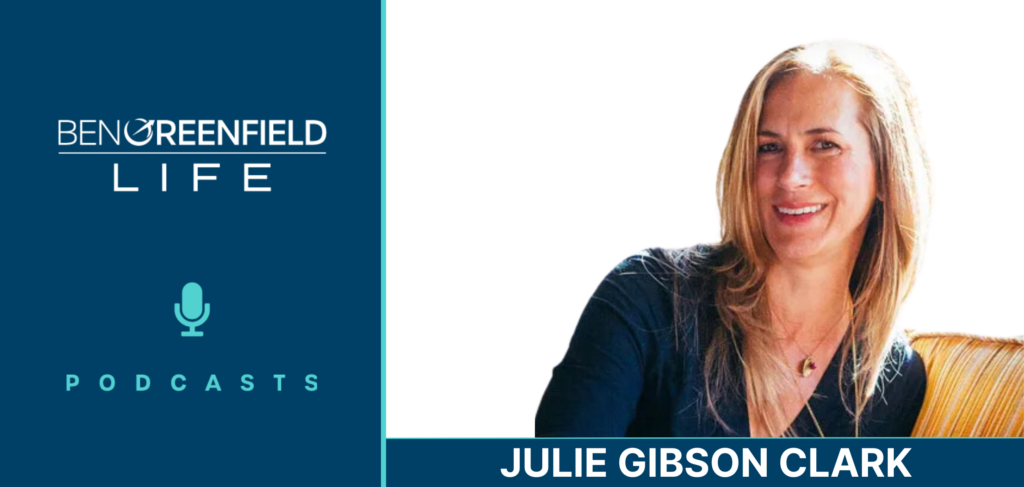


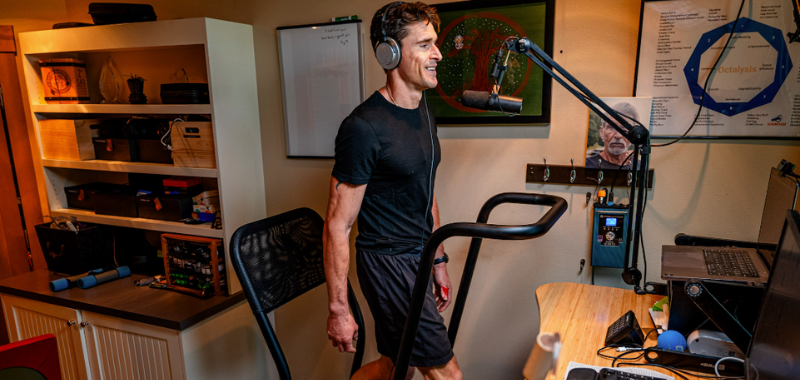
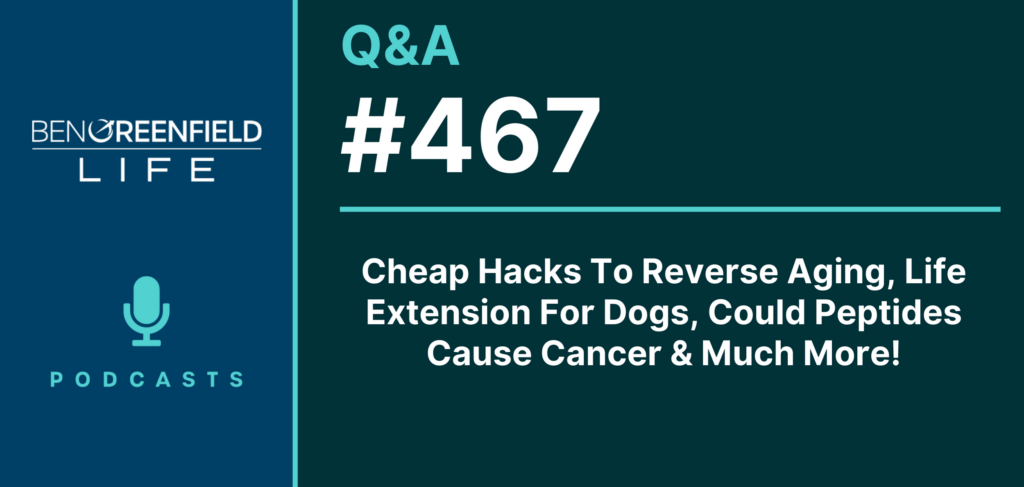

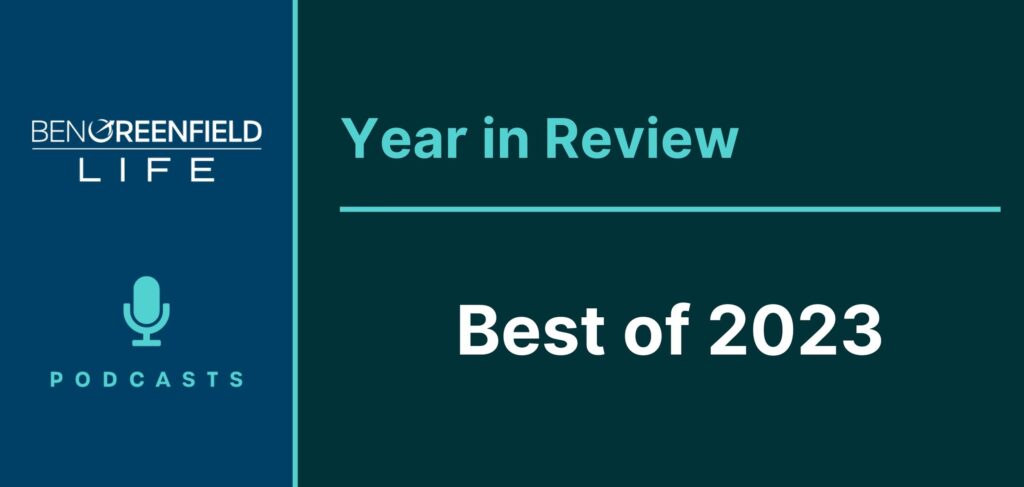
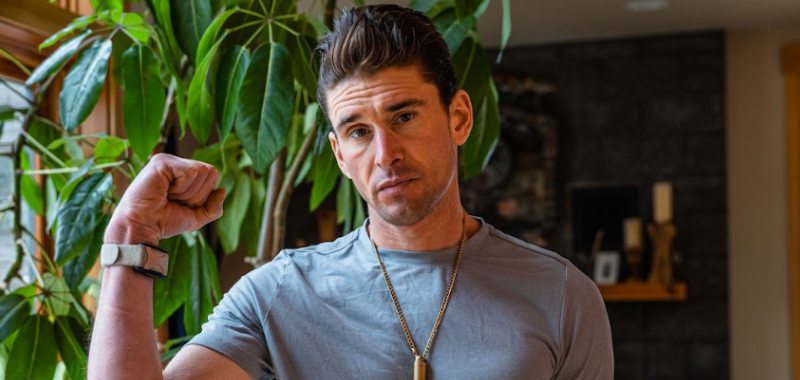

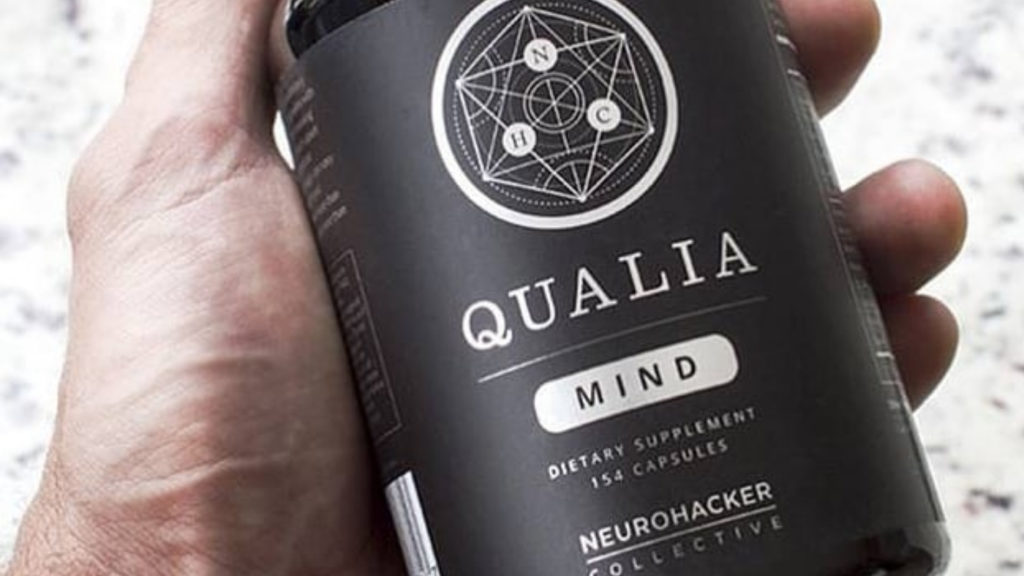

Hey Ben, great summary here! I took, (and practice!) your Longevity Blueprint through Mindvalley which I love.
Wondering about some differences in what’s prescribed in that program vs what’s recommended here and if I should adjust.
Specifically:
1) recommendation for 3 minutes of cold exposure vs the timed alternating hot/cold exposure in the program,
2) recommendation here for 20+ mins of weight lifting vs the exercise regimens in the Longevity Blueprint
Are these differences based on desired outcomes or has your thinking changed over time?
Thanks for everything you share, appreciate your dedication to sensible well-bieng.
Travel light
Live light
Spread light
Be the light!
~Yogi Bhajan
Great quote, great reminder! Love Yofi Bhajan
Excellent! I would reverse the list order of priority… #12 SPIRIT … to be #1.
Thank you for sharing your soul journey.
Thanks for sharing this great article about Primary Principles for Optimizing Lifespan Healthspan. It’s awesome!
I just want to say in one word and that is ‘amazingly good. I have seen many fitness blogs but this one is the most concise in terms of information. Keep it up and hoping to see more from you.
Thanks for sharing Ben!
Walking for health is extremely underrated. Just walking 10,000-15,000 steps a day improves mood, aids fat loss and reduces mortality.
The sections on hot and cold therapy were interesting. I have been meaning to incorporate more of it into my life.
Have a great day!
-Ajitesh
I’ve been eyeing cold therapy for a while to help with my fat loss.
Could I do this literally by myself at home and just pour some ice on my tub? Or is there any temperature requirement for this? And, when’s the recommended time to do it?
Thanks a lot!
So true! Clean air leads to a cleaner body!
Step #13
Optimize the biohacking.
“Use my affiliate links to buy a $600 breakfast smoothie and some recovery tools”
I feel stink saying it, but the majority of your info nowadays seems to be directing people to expensive gear, tests, and supplements.
Affiliate marketer that is decently attractive and works out to look the part. I’ve noticed he’s been contradicting himself a lot in posts and points lately. And most his points funnel down to buy this or buy that.
Hi,
Honestly, thats why i follow Ben, so i know what he recommends, then i can choose to buy it buy something else.
Thx Ben,
Will follow the steps.
What kind of wearable d y recommend?
I Would like to track sleep, hear rate.
Also wanna get my blood tested, any thoghts on that?
Thx and take care
Curious if Molekule is your air filter of choice? I have read some questionable articles about the efficacy about their claims. Is that your recommended brand?
I recommend Air Doctor, It’s the first affordable air PURIFIER that removes almost 100% of airborne particles, as well as the vast majority of toxic ozone, volatile organic chemicals, and gases. You can get $300 off here: https://bengreenfieldfitness.com/airdoctor
Curious as to where Sleep falls in here?. I’m a night owl and have a somewhat undisciplined sleep regimen…..I know it’s a poor health practice….I do do those other things,……
It's hard to fit everything into a single article but you're right, sleep is also very important. Check out My Ultimate Guide To Napping, Jet Lag, Sleep Cycles, Insomnia, Sleep Food, Sleep Supplements, Exercise Before Bed & Much, Much Mor: https://bengreenfieldfitness.com/article/the-last…
Don’t have space for a sauna – could you recommend a sauna blanket?
Thanks,
Absolutely! I recommend Higher DOSE: https://bengreenfieldfitness.com/higher-dose
If only most people cared for their health by being intentional with these suggestions. What would it look like if our “health officials” prescribed some of these suggestions instead of ONLY pushing masks and experimental chemical cocktails?
Thank you for the write up Ben.
Balance. Always try to effect a state of homeostasis. Most illness/disability emanates from imbalance, from extremes.
Shalom, the Hebrew word for “the way things should be,” is difficult to engender and maintain. Maintaining balance calls for intentionalality, deferred gratification, discipline, which is why so many grab for the convenient and comfortable, both of which plague modern society and which, ironically, contribute to disease vis-à-vis ease.
Great comment! I knew shalom meant peace, but as with most Hebrew words there are deeper meanings and layers of understanding. Thanks for enlightening me. 100% agree with your comment. Discipline is a virtue.
Awesome! Thanks Ben
You forgot a big one: turn off the news.
Yes good point. Shame the news is corrupt these days.
That's a good one! Thanks Kenny!